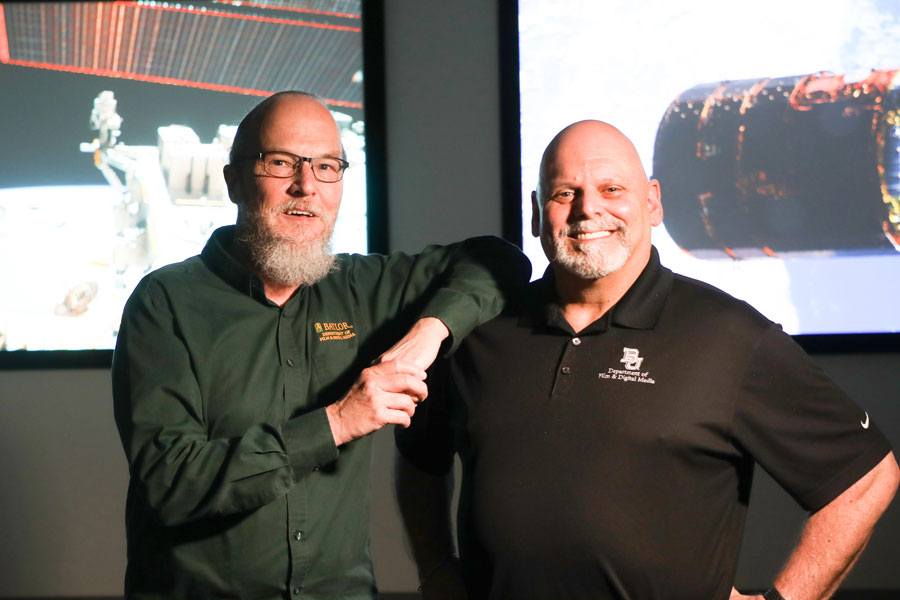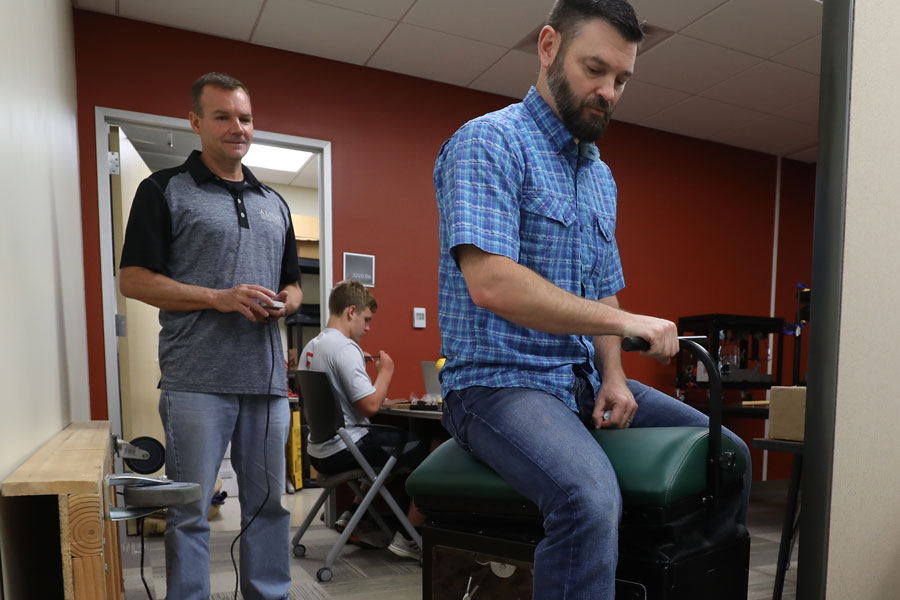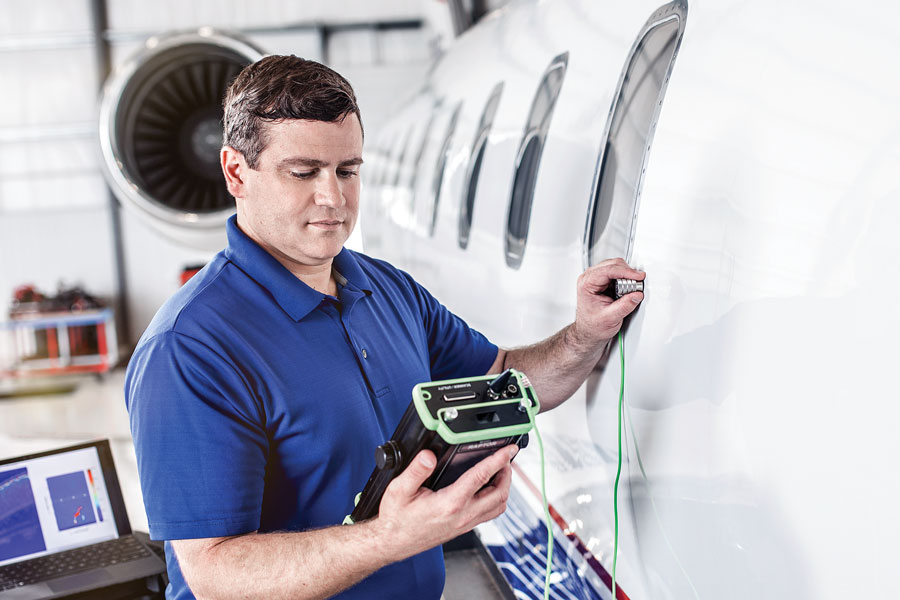Bridging the Gap:
L2M Translates Research to Real-World Products
Baylor faculty are creative problem-solvers, poised to address societal challenges through research. Across campus, examples abound in which faculty drive solutions to problems in aerospace, health, materials and more. However, when it comes to product- or service-based solutions, researchers face a challenge: Approximately 95 percent of the innovations developed in research labs never see the marketplace.
Baylor’s Lab to Market Collaborative (L2M) is working to change that. Bradley Norris, senior lecturer in entrepreneurship and corporate innovation in Baylor’s Hankamer School of Business, is the L2M operational lead.
“Lab to Market is not a department or an entity,” Norris said. “Rather, it’s a cooperative venture that bridges the gap between the laboratory and marketplace with a mission to take these incredible technical innovations and apply them to market needs.”
The Lab to Market Collaborative is a unity of effort throughout and beyond the Baylor campus, bridging the Office of the Vice Provost for Research (OVPR), Hankamer School of Business, Waco Ventures and faculty throughout the University. Alignment provides support and resources for Baylor faculty to navigate myriad obstacles in funding, intellectual property, prototyping and more toward a tangible goal — the translation of ideas into real-world products.
To date, three companies have been formed through L2M, with multiple additional professors across campus working in varying stages in the pipeline.
6P Color Inc., is an imaging system that could revolutionize color displays by dramatically expanding the number of colors high-definition screens display. The technology, which has drawn the attention of NASA and the Society of Motion Picture and Television Engineers (SMPTE), is being developed by a team led by Corey Carbonara, Ph.D., and Michael Korpi, Ph.D., longtime Baylor professors of film and digital media, and Gary Mandle, a senior research scientist at Baylor.
Chariot Innovations LLC, develops the MiraColt, a product that can bring the benefits of therapeutic horse riding to places and people without access to live horses. In particular, horseback riding is known to benefit children with autism, but circumstances (geography, finances, etc.) prevent many from taking advantage of it. The MiraColt, invented by Brian Garner, Ph.D., a Baylor associate professor of mechanical engineering, mimics a horse’s motion and enables practitioners who serve such individuals to provide greater access to treatment.
was formed to advance technology that uses ultrasound to make airplanes safer. Currently, parts testing requires the destruction of composite materials to determine if a part is working correctly. David Jack, Ph.D., professor of mechanical engineering, conducts research into non-destructive testing technology that could enable companies to test specific parts without the expensive and time-consuming destruction of the materials currently required.
“The chance to be a part of Lab to Market is phenomenal and very educational,” Jack said. “I’ve been educated tremendously on how industry works. They’ve opened doors that I wouldn’t have been in position to open and maybe didn’t even know existed. They’re making this into something that will have much more of an impact than I ever thought it could.”
At the root of the L2M process is an alignment that empowers everyone involved to do what they do best. If a university’s lane is research and scholarship, and an industry’s lane is the development of products or resources, there can be a disconnect in connecting the dots that L2M works to bridge.
In 2020, Baylor’s efforts received a significant boost through a $1.5 million U.S. Department of Commerce grant procured by Norris. L2M is working to grow that seed into an endowed fund capable of sustaining R1 levels of prototyping needed for future faculty projects. Last year, the University launched ProtoLAB, a full-service facility within the Baylor Research and Innovation Collaborative (BRIC) to produce prototypes for beta testing from faculty research projects.


